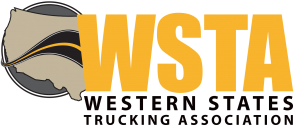Our Association is classified as a tax-exempt organization (trade association) under IRS Code (IRC) Section 501(c)(6). In addition to providing group dental insurance and other goods and services to our dues-paying members, WSTA actively monitors the executive, legislative, and judicial agendas at all levels (city, state, and national) as they relate to our industry and interests. When we identify an issue of such importance that we feel a more direct role is required on our part in the best interest of our membership and the industry as a whole, WSTA will act accordingly.
This means that WSTA will, at times, take an active role in Sacramento or at the local level through the channels available to us in order to support the industry’s agenda. And we’ve developed a decent track record along the way.
By now you’re asking, “How does all that affect my business and/or personal income tax return?”
Certain political activities and expenses incurred are allowable for 501(c)(6) tax-exempt organizations. However, under the Clinton administration, in the Omnibus Budget Reconciliation Act of 1993 (OBRA ’93), Congress declared that taxpayers no longer would be allowed to deduct for federal income tax purposes the expenses that taxpayers incur when they engage in lobbying. Tax deductibility also is disallowed by this law for a portion of membership dues paid to trade 501(c)(6), professional and similar membership associations if the associations engage in more than minimal ($2,000 or less) amount of lobbying.
The member dues that you pay to the Association are ordinarily fully deductible on your tax return as a business deduction. However, since WSTA periodically engages in political and lobbying activities, it is the IRS’ position that part of the dues you pay are utilized by the Association for these activities. Therefore, through the dues you pay, you are indirectly paying for a lobbying activity.
IRC Section 6033 (e) and IRS Revenue Procedure 98-19, requires 501(c)(6) organizations that “pays or incurs nondeductible lobbying expenditures to notify its members of a reasonable estimate of the portion of dues that are allocatable to those expenditures.”
It is the responsibility of the Association to disclose to members the percentage of dues paid that must be excluded as a deduction from your tax returns. We have reasonably estimated the percentage to be 9.16% of all dues paid. For example, if you paid $341 in 2025 in member dues, subtract 9.16% from that total to arrive at your deductible amount:$341 x 9.16% (.0916) = $31.24.
$341 less $31.24 equals your deductible member dues for tax year 2025, or $309.76.
Even at the maximum dues of $588.50 it is only a lost deduction of about $53.91. So for all members, we’re not talking about very much.
There is, of course, an alternative to this option.
WSTA could opt not to provide this disclosure and incur the tax liability directly instead. It is again called a Section 6033(e) Proxy Tax on all lobbying and political expenditures, and it’s a flat 35% tax on the expenses incurred. The problem with this is that the Association’s tax liability could be quite large.
Members are able to deduct their dues in full, and as you can see from the examples above, we are talking about an almost immaterial taxable difference to the member. Therefore, the WSTA Board and Membership has determined that disclosing the lobbying expenditures as a portion of your dues is the most responsible option, thus relieving the Association of a potentially large tax liability each year.
Click here for W-9 form.



